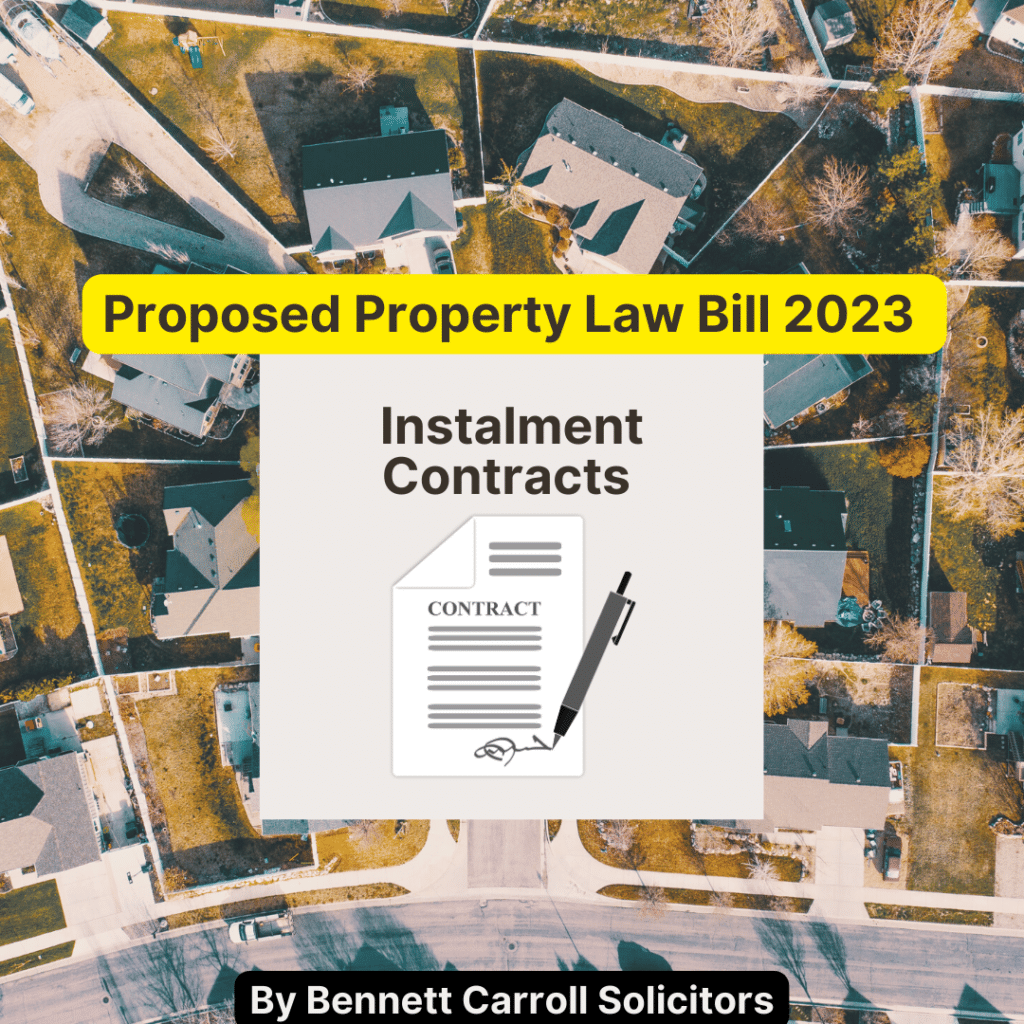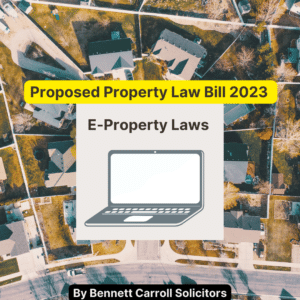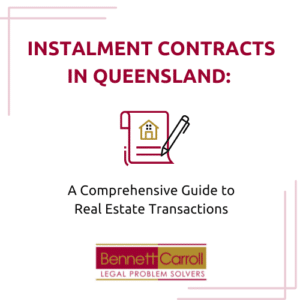It is proposed that the Property Law Bill 2023 will replace the current Property Law Act 1974 (PLA). So what does that mean to instalment contracts? What are a buyer’s protections? What are the effects of opting for an instalment contract?
What is an instalment contact?
An instalment contract is a contract for the purchase of land by payment of the purchase price in instalments over time. It is also considered an instalment contract if the deposit exceeds 10% of the purchase price (or 20% if a proposed lot under the Land Sales Act 1984). The title is supposed to remain in the seller’s name until the final instalment is paid.
Buyer’s Protection
The Bill preserves some of the Property Law Act’s protection mechanisms for buyers under instalment contracts including:
- the right for the buyer to lodge a caveat;
- the right for the buyer to require a conveyance of the land;
- restrictions on how the seller can deal with the land during the term of the instalment contract;
- and restrictions on the seller’s right to terminate the contract without providing 30 days’ notice.
This enshrines the previous position that ‘time is not of the essence’ in instalment contracts. This is a small but critical issue in some contact situations.
Buyer elects to create instalment contract
The Bill clarifies the language to prevent the inadvertent creation of instalment contracts and to streamline the process where instalment contracts exist. In the Bill, the definition of an instalment specifically excludes payments made by the buyer to the seller for rent, outgoings, maintenance, rates and taxes, interest on any part of the purchase price, or for an extension of time to complete the contract.
Further, the buyer must elect for the instalment contract to be treated as an instalment contract before the instalment contract provisions will apply (rather than applying automatically as under the current Property Law Act provisions).
Instalment contract provisions are simplified in the Bill as:
(a) the buyer is no longer able to require conveyance of the property in return for a mortgage for any outstanding balance of the purchase price which will be owing on settlement of the sale of the property; and
(b) the seller is no longer required to deposit the title deed and an instrument of transfer in escrow pending settlement of the sale of the property (as paper certificates of title are no longer issued in Queensland)
Effects of creating an instalment contract
Where a contract is deemed an instalment contract and the buyer elects for the instalment contact to be performed as an instalment contract:
(a) the seller cannot sell or mortgage the property unless the buyer has consented to the stated terms of the sale or mortgage in advance and the sale or mortgage has been notified to the buyer by the seller (a further clarification of the current PLA); and
(b) the buyer is able to lodge a caveat preventing registration of any other document affecting the land until settlement of the contract; and
(c) the seller cannot terminate the contract unless the seller has given a notice to the buyer requiring the buyer to settle within 30 days of that notice; and
(d) the buyer on giving 3 months’ notice .may require transfer of the property on payment of the balance purchase money owing at settlement date (rather than in return for a mortgage for the balance of the purchase price as under the current PLA. provisions).
Legal update on the Proposed Property Law Bill 2023
The Property Law Bill (Qld) 2023 was introduced to Queensland Parliament on 23 February 2023 – The Scheme is a significant change to conveyancing in Queensland and it will be vital that people in the industry are familiar with it. The proposed bill is over 120 pages long so we’ve summarised some key points.
- E-Property Laws
- Instalment Contracts
- Land Lotto – are you entitled to land?
- Leases
- Mortgages
- Seller Disclosure Scheme
Please contact us if you have any questions in relation to this matter or if we can assist you with any other legal matter. We have offices across South East Queensland with the capability to work electronically through Queensland and Australia.
Call us on 1300 334 566 or email info@bcglaw.com.au and safeguard your interests every step of the way- We are your legal problem solvers.








